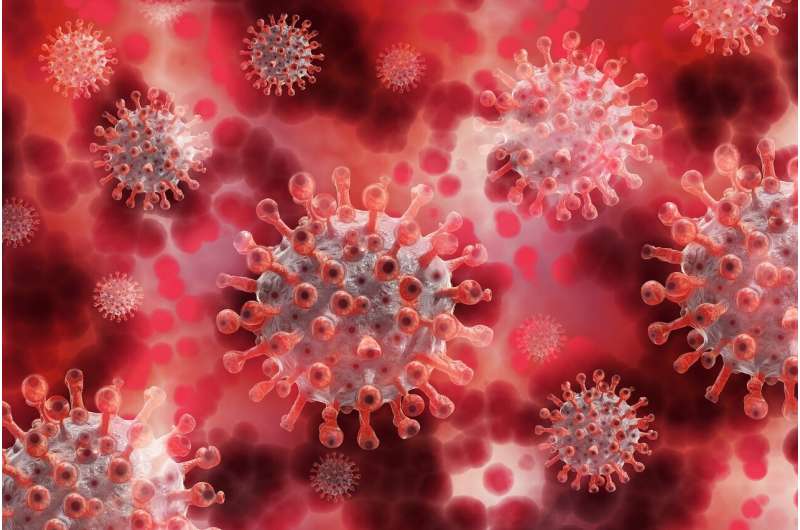Epidemiologist warns pandemic is far from over

According to the latest projections out by the CDC, the United States may see a sharp decline by July in COVID-19 cases—that is, if vaccinations continue and people wear masks where appropriate and adhere to social distancing.
Dr. Mary Jo Trepka is an infectious disease epidemiologist and chair of epidemiology at FIU’s Robert Stempel College of Public Health and Social Work. Since the start of the pandemic, Trepka has worked to help control COVID-19 and promote the importance of vaccinations in Miami-Dade County.
Trepka answered questions about the current state of the pandemic and what we can do to keep one another healthy and safe as we head into the summer.
It seems like things are trending in the right direction here. So, with the CDC predicting a sharp decline this summer, what’s the focus now?
Yes, this is great news. The problem is that SARS-CoV-2 will be around for a while. It’s going to be years before the majority of the world’s population is vaccinated. Just because cases are going down doesn’t mean the problem has disappeared. Currently, we are under 1,000 COVID-19 cases a day in Miami-Dade County. This brings us back to where we were at the end of October, but it’s certainly not the lowest we’ve had since the pandemic started.
Vaccinations are crucial to helping us stop this pandemic. CDC reports that younger adults are the least likely to get vaccinated. What’s your pitch to young adults for getting the vaccine?
First, most of the transmission right now is among young adults. Among recent hospitalizations, a higher percentage are younger people, and young people have died from COVID-19. We are seeing this because a higher percentage of older people have gotten the vaccine, which has helped with the drop in hospitalizations and deaths, while most younger people are still not vaccinated.
Second, we will not be able to get herd immunity if young people don’t get vaccinated. The way we will be able to stop transmission or at least bring it down to low levels is through vaccination. And we have to vaccinate the majority of people, so we need young people to help. When people get vaccinated, they protect themselves and the people around them—this includes their parents, grandparents, and other older relatives.
We hear about herd immunity often. What does this mean?
As an example, let’s say someone were to travel to Miami with an infectious case of COVID. If the people around that person are immune because they are vaccinated, the virus has nowhere to go. The chain of transmission has stopped—this can happen when a high percentage of the population is vaccinated, resulting in immunity of the herd—herd immunity. That’s why it’s so essential that a high percentage of people are vaccinated so that we can stop these chains of transmission.
Media outlets nationwide have reported that Pfizer could authorize their vaccine for children ages 12 to 15 by next week. What do you know about this new development?
Pfizer completed a clinical trial with children aged 12 to 15 and found 100 percent efficacy—none of the kids vaccinated actually got symptomatic COVID. Whenever this rolls out, it’s important that those in this age group get vaccinated so they can get back to normal school life including school clubs and sports. It will also help us as a community get herd immunity so that it would be difficult for transmission to occur. Ideally, we want all children to be vaccinated, but the trials aren’t finished yet with children under 12.
For parents, the Pfizer news could be met with excitement or skepticism. What would you say to those who are on the fence about getting their kids vaccinated?
People need to understand that COVID-19 can be a severe illness even in children. In Florida, 16 children have died from COVID-19 and 1,689 children have been hospitalized. In addition, one of the things that we are seeing with children as a result of a COVID infection is that they are coming down with multisystem inflammatory syndrome. It’s a condition that severely affects children’s organs, and these children end up being hospitalized. We have had 181 children with this syndrome in Florida so far.
If you are a parent, you need to know about the risks of COVID-19 to children. Getting children vaccinated against COVID-19, once the vaccine is authorized for their age group, will protect them from these risks, and it will also help protect other people in the family and community that they are in contact with.
We still see misinformation being shared on social media that can fuel skepticism. What sources can we point to so that people can get reliable information?
Source: Read Full Article



